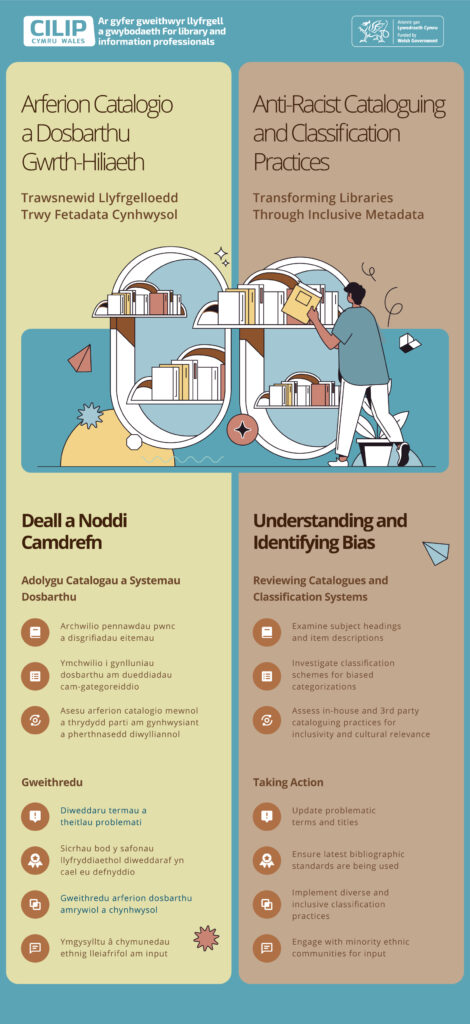Critcatenate is an effort to keep folks up to date on critcat efforts with a monthly-ish roundup of news. Critcat is short for critical cataloging, focusing on the ethical implications of library metadata, cataloging, and classification practice, standards, and infrastructure.
#critcat in July 2024:
- New article: Critical Cataloguing and Contradiction Analysis: Using Mao Zedong’s Dialectical Materialism to Address Classificatory Antagonisms by Ryan Burley, published in the Journal of Radical Librarianship
- New webinar recording: Increase Religious Equity by Reclassifying Dewey 200s, the June 2024 OCLC Cataloging Community Meeting, with panelists Emily McDonald, Elizabeth McKinstry, Matthew Vasquez Jaquith, and Alex Kyrios
- New podcast episode: The Power of Good Description, episode 607 of Lost in the Stacks. “Features an interview with Alex Brinson, ACRL Fellow at the Georgia Tech Library, discussing her work with Alex McGee in describing archival material related to the admission application of Black student Robert Cheeseboro in 1953, and other hidden histories in the archives.” [see also last month’s Critcatenate for more info about the Uncovering Hidden Narratives project]
- New blog post: Staff repair harmful language and enhance description of student experiences in the collection, featuring work of the Presbyterian Historical Society on their records relating to the Tucson Indian Training School
- New blog post: The National Museum of the Royal Navy – Addressing Empire on the Collections Trust blog, describing work done to review the controlled terminology used in its catalog as well as creating new structures and more inclusive and non-specialist terminologies
- New presentation text: The Interdependent Library System: Revisiting Human Aspects of Library Automation by Ruth Kitchin Tillman
- New presentation paper: Infrastructures of Reparative Description by Alissa McCulloch, presented at VALA (Australia)
- New podcast episode: Decolonizing Archives with Martien de Vletter, episode 153 of the ArchitectureTalk podcast, discussing reparative description work done at the Canadian Centre for Architecture. Also relevant: The Discovery of Absences from Martien de Vletter
- New recording: IGBIS Introduces the South African SACO Funnel: Instigating Change in Description, hosted by the LIASA (Library and Information Association of South Africa) IGBIS (Interest Group for Bibliographic Standards). Discusses the new South African SACO Funnel, which aims to review LCSH ” that represents a pre-Democratic Apartheid South Africa and commits to creating accurate, inclusive, and respectful terminology”
- New-ish document: A Guide to Creating Inclusive and Reparative Archival Description at Tulane University Libraries and Newcomb Archives
and Vorhoff Collection, 30 page guide including case studies - New-to-me recording: First Nations Collection Description Guidelines for the Library Sector from Tui Raven. I missed this webinar hosted by National and State Libraries Australasia in October 2023, but the recording is available online
- New book: The DEI Metadata Handbook: A Guide to Diverse, Equitable, and Inclusive Description edited by H. E. Wintermute, Christopher S. Dieckman, Heather M. Campbell, Nausicaa L. Rose and Hema Thulsidhos, published by Iowa State University Digital Press
- New book: Inclusive Cataloging: Histories, Context, and Reparative Approaches edited by Amber Billey, Elizabeth Nelson, and Rebecca Uhl, published by ALA Editions. Lots of great stuff so I’m sharing the table of contents here.
- Chapter 1. Ways of Knowing: The Worlds Words Create / Amanda Belantara and Emily Drabinski
- Chapter 2. This Is the Work: A Short History of the Long Tradition of Inclusive Cataloging—Critiques and Action / Violet Fox and Tina Gross
- Chapter 3. Describing Themselves: Diverse Library Cataloging, 1930-1970 / Sasha Frizzell
- Chapter 4. A (Very) Select History of Inclusive Cataloging / Karl Pettitt
- Chapter 5. Did Libraries “Change the Subject”? What Happened, What Didn’t and What’s Ahead / Jill E. Baron, Violet B. Fox and Tina Gross
- Chapter 6. Accessibility Metadata and Library Catalogs: Current Outlook and Initiatives / Christopher Carr, Teressa Keenan, Chris Oliver
- Chapter 7. Gendered Information and the Program for Cooperative Cataloging / Matthew Haugen and Michael L. Stewart
- Chapter 8. From “Afrofuturist comics” to “Zombies in comics”: Inclusive Comics Cataloging from A to Z / Allison Bailund, Steven W. Holloway, Carole Sussman, Deborah Tomaras
- Chapter 9. Critical Cataloging Beyond the Core / B. M. Watson
- Chapter 10. Words Matter: Creating a Harmful Content Statement for Your Public Library / Rachel Newlin and Aaron Bock
- Chapter 11. Coming to Terms: Enacting Reparative Change in and Urban Public Library OPAC / Miriam Gloger and Amy Mikel
- Chapter 12. Enhancing Subject Access to LGBTQ+ Materials: It’s Not Just About the (Rainbow) Crosswalk / Jawahir Javaid and Becker Parkhurst-Strout
- Chapter 13. Access, Identity, and Context: Inclusive Cataloging in the Hayes Research Library at Perkins School for the Blind / Jennifer Arnott
- Chapter 14. Reparative Description for Collection-Level Archival Records: A Case Study / Allison McCormack
- Chapter 15. Reparative Cataloging as a Solo Librarian: a Special Library Case Study / Katie Yeo
- Chapter 16. Representing Gender-Diverse Creators in Indiana University Cook Music Library’s Online Catalogs / Laikin Dantchenko
- Chapter 17. Promoting Inclusivity and Cultural Humility Through Cataloging: A Digitization Project / Elyse Fox, Lynn Sanborn and Pachia L. Vang
- Chapter 18. A Place to Think About Inclusive Cataloging / Bronwen Bitetti, Vic Panata and Sebastian Moya
- Chapter 19. Retrospective Cataloging Project for Respectful and Inclusive Metadata: Revising LC Call Numbers for Black People / Yuji Tosaka
- Chapter 20. The Trans* Collections Project: Conducting a Diversity Audit to Assess, Grow, and Make a Collection More Discoverable / Brittany O’Neill, David Comeaux, Marty Miller, Michael F. Russo, Zachary Tompkins
- Chapter 21. “It Isn’t Part of Our Language”: Engaging Indigenous Peoples to Facilitate Self-Naming in Subject Headings / Steven Folsom and Laura E. Daniels
- Chapter 22. Out of Many, One: A Unified Approach to Inclusive Description at Clemson University / Jessica L Serrao, James E. Cross, Scott M. Dutkiewicz, Charlotte Grubbs, William D. Hiott, and Shannon Willis
- Chapter 23. Subject Heading Enhancement: A Reparative and Inclusive Practice at the University of Virginia Library / Jeremy Bartczak, Veronica Fu, and Carmelita Pickett
- Chapter 24. Canceling “Primitive”: A Subject Heading Revision Fifty Years in the Making / Jamie Carlstone
- Chapter 25. One Step at a Time: Using Targeted Pilot Projects to Achieve Meaningful and Scalable Metadata Reparation / Savannah Lake, Joseph Nicholson and Jenn Brosek
- Chapter 26. Automating Inclusivity: A Case Study Detailing how to Automate Inclusive Cataloging in Alma / Rachel Turner, Maggie McGee, Brian Morse, Leslie Feldballe, and Maria Planansky
- Chapter 27. Inclusive Cataloging in an Academic Library Consortium / Allison Bailund, Anamika Megwalu, Julie Renee Moore, Yoko Okunishi and Israel Yanez
- Chapter 28. Reparative Cataloging at The Washington Research Library Consortium: Moving Ideas into Action in the Shared Environment / Matthew Bright, Yoko Ferguson, David Heilbrun and Jacqueline Saavedra
I’m doing a brief review of the new LCSH lists for headings that might be of interest to readers of Critcatenate. LCSH list numbers consist of a two-digit number for the year and a two-digit number for the month the headings were approved (for example, headings on list 2405 were approved in May 2024).
New LC headings of note on list 2405:
- Multiple LCSH revised: from “cult” to “religion,” for example, Afro-Brazilian cults to Afro-Brazilian religions; from Espiritismo (Cult) to Espiritismo
- UF removed: the Use For Mongolism (Disease) was removed from the subject heading Down syndrome
- New LCSH: Universal design fonts
Upcoming:
- Thursday August 8: Spanish Homosaurus Summit: Making Spanish Language LGBTQ+ Collections Accessible at UCLA
- 10-12: Workshop the Spanish Homosaurus: Work with grant partners to review terms from the initial draft of the Spanish Homosaurus. This event is open to all but designed for Spanish-speakers (of any level).
12-1: Lunch
1-2: Project Introduction and LGBTQ Collections Tour at the UCLA Chicano Studies Research Center
2-4: Community Co-Design Sessions: An opportunity for those interested in the accessibility of LGBTQ+ cultural heritage resources to identify challenges, opportunities, and engage in collaborative visioning. Sessions will be conducted in English and are open to all.
- 10-12: Workshop the Spanish Homosaurus: Work with grant partners to review terms from the initial draft of the Spanish Homosaurus. This event is open to all but designed for Spanish-speakers (of any level).
- Tuesday August 13: Improving Access to Indigenous Collections Through Classification and Metadata, webinar hosted by NASIG and presented by Margaret Joyce, Cleire Lauron, Jordan Pedersen, and Juliya Borie
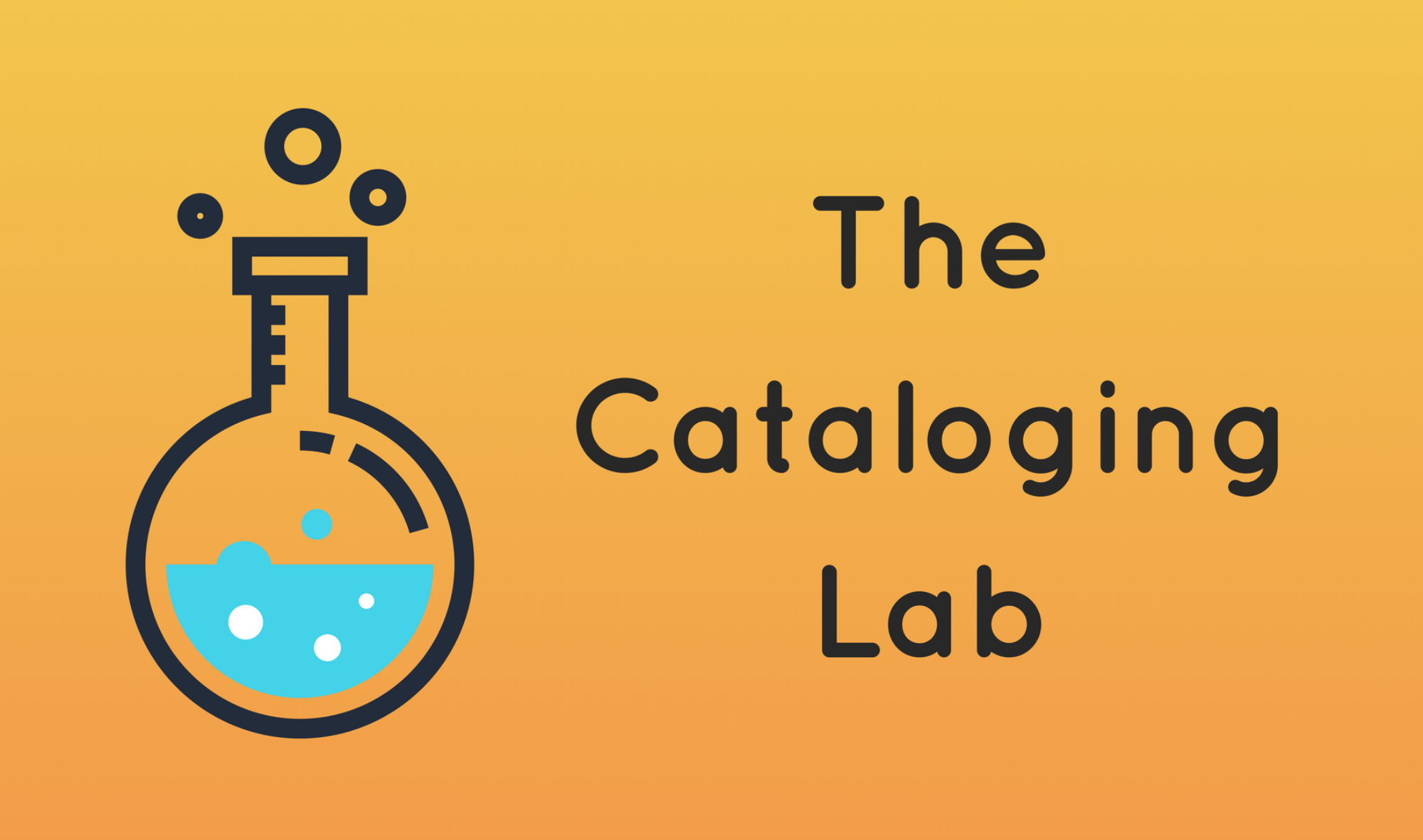
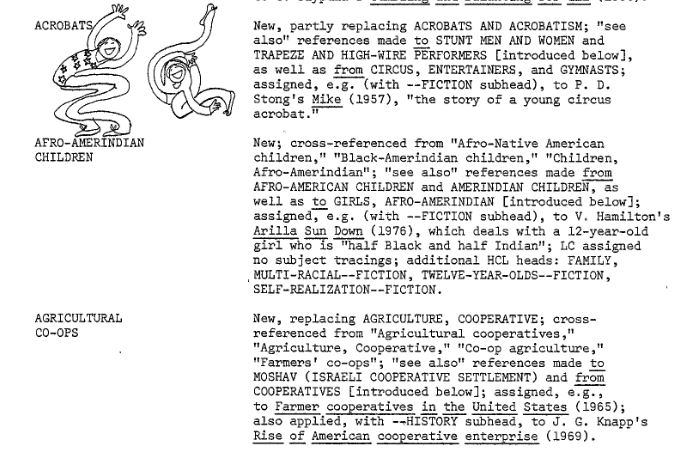
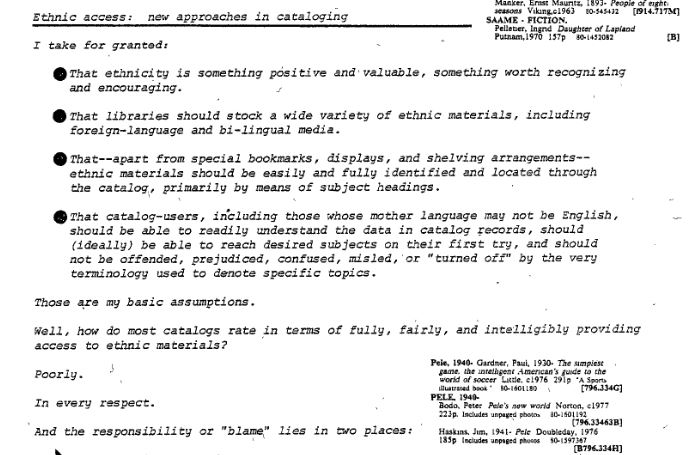
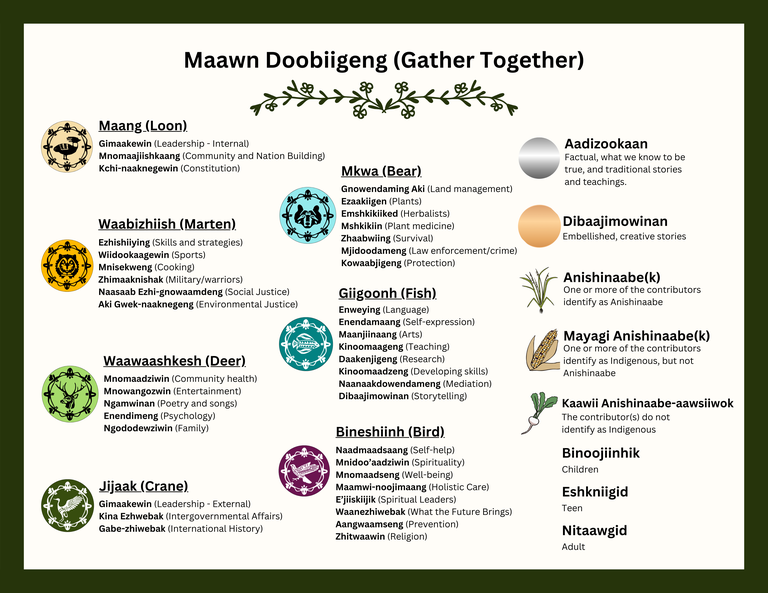
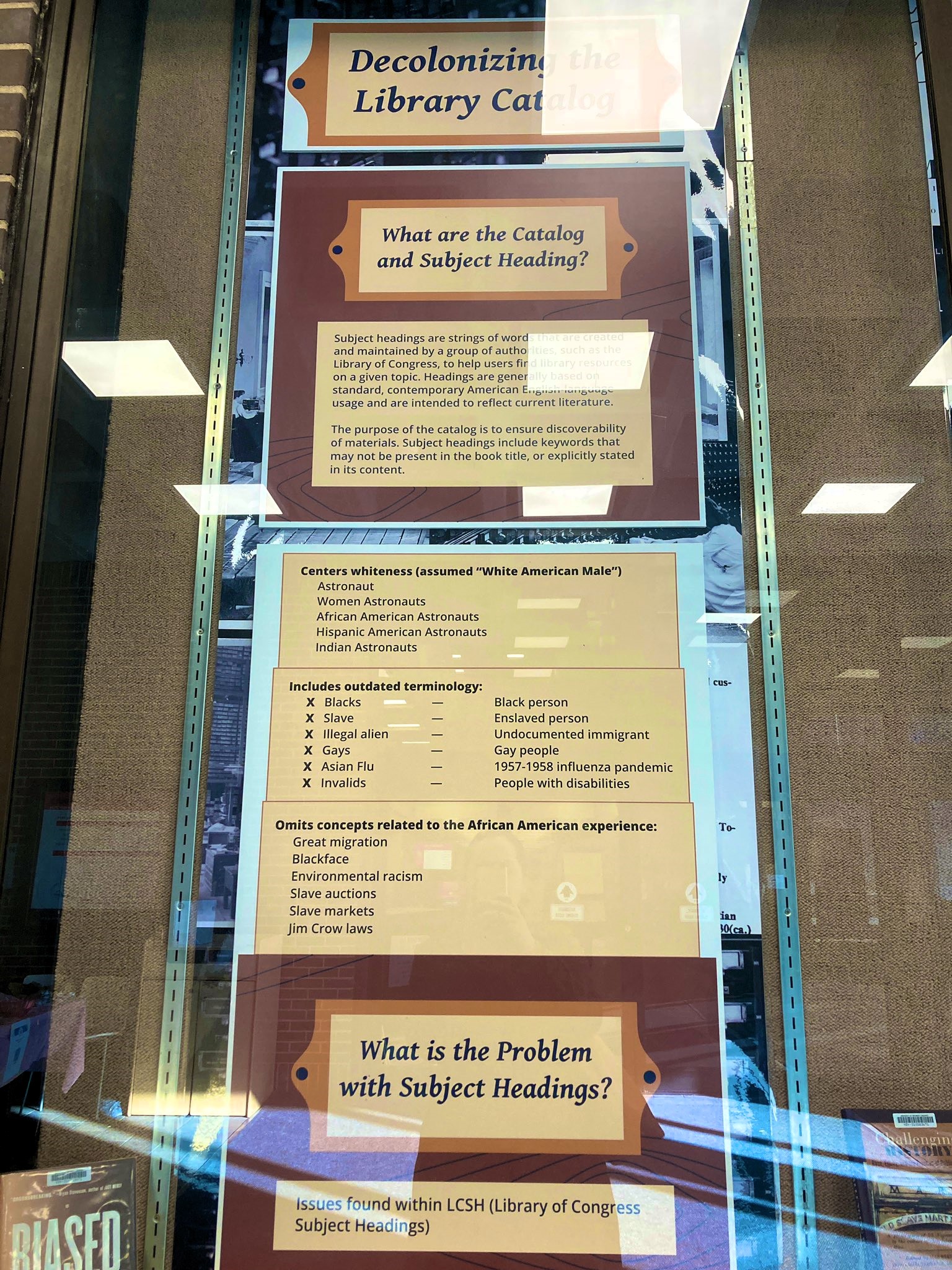
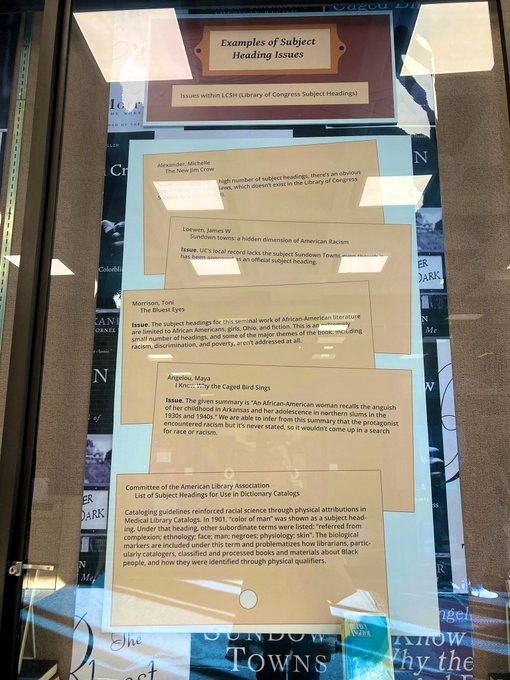
![Efforts to Decolonize the Catalog 1930s - Dorothy Porter, Catherine Latimer, and Francis Lydia Yocom developed local “unauthorized” subject headings for their respective institutions due to lack of inclusivity from LCSH. 1970s - Sanford (Sandy) Berman began the contemporary movement to modernize LCSH. He created an independent subject headings system at the Hennepin County Library in Minnesota improving upon LCSH with a responsive approach. His work moved to not only reform LCSH but also assert libraries' autonomy to move beyond its limitations. 1980s - Some problematic subject headings were eliminated or changed, including “Yellow peril". 1999 - The African American Subject Funnel Project was initially conceived as part of SACO (Subject Authority Cooperative Program) and works to create and update subject headings related to African American culture and history. The Funnel promotes the aims of the African American Studies Librarians Interest Group (AASLIG) which are to support research and services associated with identifying, preserving and spreading information on the study of African American life. They work with the Library of Congress Program for Cooperative Cataloging (PCC) to provide input and guidance on terminology that accurately reflects the African American experience. 2020s - Long-criticized subject headings changed (removed "riots" to make “Tulsa Race Massacre"), glossaries and thesauri of inclusive language created and libraries started publishing statements on potentially harmful language. Terms such as Black Wall Streets and sundown towns are not new to those familiar with African-America, history and culture. These terms, however, did not exist in LCSH until funnel project members worked to develop these headings with help from insider perspectives and scholarly references. While we strive to acquire and make findable materials that are representative of our diverse community and the world. We recognize that materials with harmful, offensive and non-inclusive content may be included in our Library Catalog. If you encounter any harmful, offensive, or non-inclusive language in the library catalog, we welcome your feedback at [unreadable email address]](https://cataloginglab.org/wp-content/uploads/2024/02/UCincinnati-efforts-to-decolonize-library-catalog.jpg)
